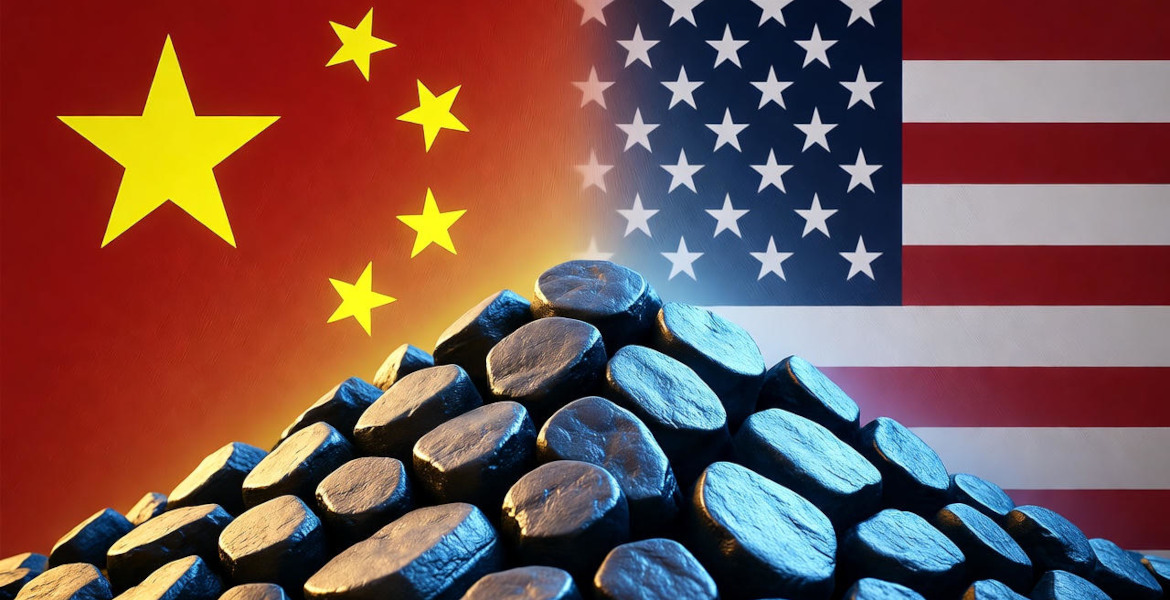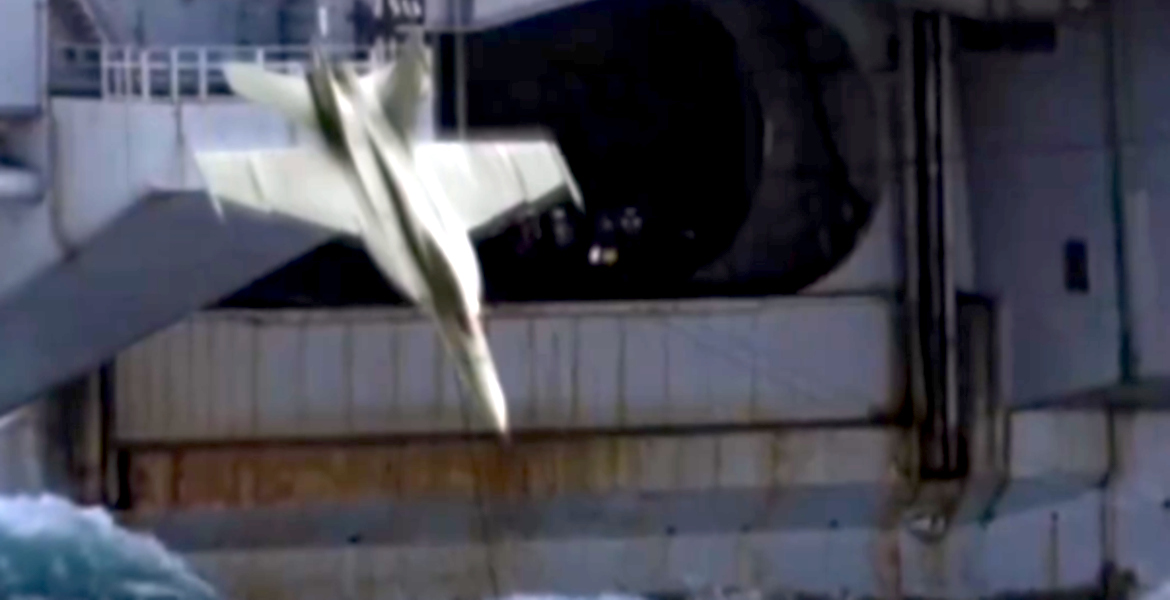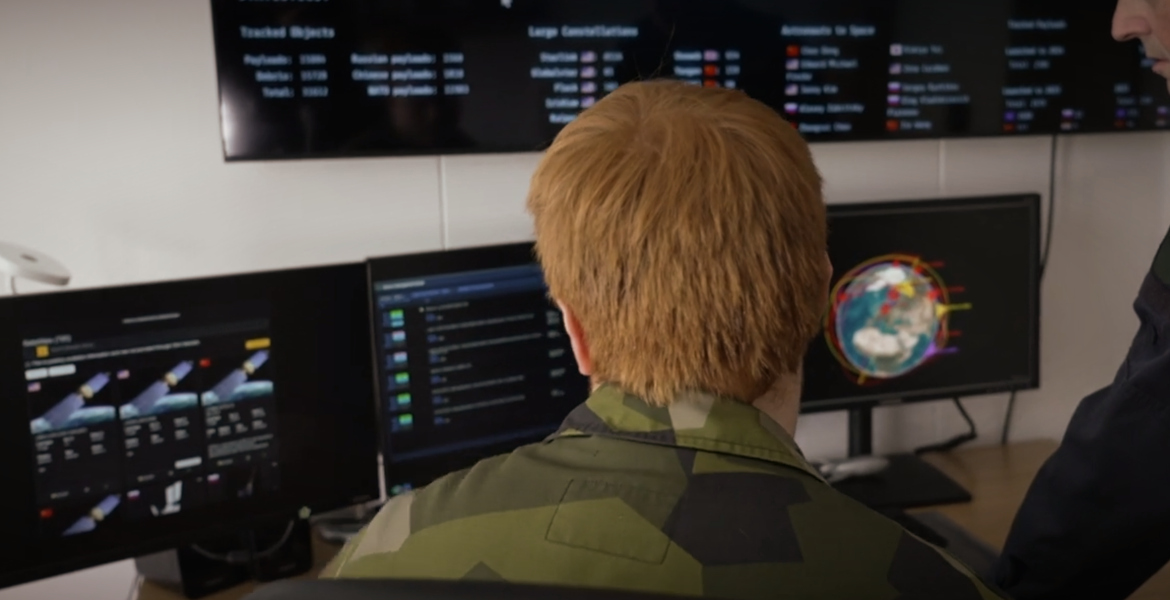On October 10, China detonated a bomb – not with missiles, but with minerals. New export controls on rare earth metals now threaten to suffocate the entire global high-tech supply chain.
Two superpowers stand face to face in what has become an industrial war. The Nordic Times summarizes the dramatic escalation that has changed the playing field between the USA and China.
The development has been described by analysts as an "economic Pearl Harbor". This is no longer just about trade policy countermeasures, but about mutual economic mass destruction where both sides are prepared to take major damage to win.
What began as a trade war about tariffs has transformed into a battle for control over the elements that drive the modern world.
What happened on October 10?
On October 10, 2025, China imposed new tightened export controls on rare earth metals and related technology. The regulations require special licenses for export of products containing more than 0.1% rare earth metals from China – or manufactured with Chinese production technology.
It sounds technical, but the implications are explosive. As journalist Mario Nawfal states: "That's laptops, batteries, EVs - basically the modern world".
With a stroke of the pen, Beijing gained veto power over large parts of the world's high-tech production.
President Donald Trump responded within hours. He threatened an additional 100% tariffs on Chinese goods "on top of all tariffs they are currently paying," with start on November 1. Trump called China's move "absolutely unheard of in International Trade, and a moral disgrace".
The market reaction was brutal – in a single day, $2 trillion in market value disappeared from American stock markets. The Dow Jones fell by 879 points (1.9%), the S&P 500 dropped 2.71%, and the Nasdaq plunged 3.56% – the worst days since April.
Why are rare earth metals so important?
To understand why the world now stands on the brink of an economic crisis, one must understand what rare earth metals are – and why China controls them.
China accounts for 70% of global rare earth metal mining and 90% of the world's processing and refining. The country produces as much as 95% of the world's rare earth magnets.
These minerals are used in everything from smartphones and electric vehicles to military equipment and renewable energy technology. Rare earth metals are critical components in advanced military technology – from fighter jets to submarines, these critical minerals power essential systems.
China is about to pop that AI bubble. pic.twitter.com/pneEwoZmDq
— Zhao DaShuai 东北进修 (@zhao_dashuai) October 10, 2025
The figures are striking: A single F-35 fighter jet contains over 400 kg of rare earth metals, while a Virginia-class submarine requires a full 4,600 kg. Rare earth metals are also critical for medical technology in laser surgery and MRI scanning.
Already in 1992, the then Chinese leader Deng Xiaoping stated that "the Middle East has oil and China has rare earths". It wasn't just an observation – it was a long-term strategy that is now reaching its culmination.
From trade war to industrial war
The trade conflict between the USA and China began in 2018 during Donald Trump's first presidential term, when the USA imposed tariffs on Chinese goods to limit the growing American trade deficit with China.
During the Joe Biden administration (2021-2025), the tensions continued, with Trump's tariffs remaining and Biden imposing restrictions on American exports of technological knowledge and advanced chips to China.
When Trump returned to the White House in January 2025, the conflict quickly escalated. On April 2, 2025, during what Trump called "liberation day," the USA imposed an additional 34 percent tariff, which increased the total tariff against China up to 54 percent.
China responded on April 4 with export restrictions on seven rare earth metals, and tariffs quickly escalated to a minimum of 145 percent during the spring, and stock markets nearly entered a bear market in April.
In May, the parties agreed to a ceasefire to negotiate a new trade agreement, and both China and the USA significantly reduced tariffs. In June, a framework agreement was concluded in which China committed to continue giving the green light for export of rare earth metals to the USA.
But the peace was fragile. In October 2025, China announced the strictest export controls on rare earth metals and permanent magnets to date – and the ongoing trade war transformed into something entirely different.
“It was shocking… it came out of the blue”
— Trump talking about China’s export controls on rare earth minerals.
Umm… hello! For 8 years, the US has been doing the same to China in semiconductor, AI etc. pic.twitter.com/G3Vp8dlyP7
— S.L. Kanthan (@Kanthan2030) October 11, 2025
China's new weapon
For the first time, China applied the so-called "foreign direct product rule" (FDPR) – a mechanism that the USA has long used to restrict semiconductor exports to China. Now China is turning the tables.
"Under the new regime, any product containing ≥0.1% Chinese rare earths or magnet material now requires a Chinese export license, even if it's made abroad. In other words: if your phone, drone, or fighter jet includes Chinese-origin materials anywhere in its supply chain, Beijing gets a veto," comments Mario Nawfal.
"This isn't about dirt or ore - it's about control of the midstream, where minerals become tech. The move turns rare earths into a geopolitical weapon", he continues.
China doesn't just control the mines, but the entire value chain from raw materials to finished products. And now that power is being used as a weapon.
AI and the defense industry in the crosshairs
The two biggest losers are expected to be the AI industry and the military-industrial complex. China's new export controls stipulate that materials used for chip production below the 14 nanometer node must seek approval from China.
The nanometer node is a measure of how small the transistors in a chip are – the lower the number, the more advanced and powerful the technology, and modern AI and advanced military technology require chips below 14nm.
Even products with dual-use applications – that is, technology that can be used both civilly and militarily – must be approved. Beijing will decide each case individually.
This creates a potential bottleneck for the entire advanced chip supply chain. TSMC, the world's largest contract manufacturer of semiconductors, is already prohibited from manufacturing chips below the 14nm node for China at the USA's request.
Now China is reversing the logic: if we can't get your most advanced chips anyway, maybe the world doesn't need them either. China's own chip manufacturer SMIC can produce equivalent 7nm to 5nm chips.
The stock market reaction showed which sectors are hit hardest. The technology and green energy sectors, both of which are heavily dependent on rare earth metals such as neodymium and dysprosium, bore the heaviest burden.
Nvidia fell by nearly 5 percent, AMD by 7.7 percent, and Tesla dropped over 5 percent. Chinese tech giants were hit even harder – Alibaba fell by 10 percent, Baidu over 8 percent, and JD.com by more than 6 percent.
USA's desperate countermoves
Trump administration's top officials have convened executives from technology and rare earth companies in an intensive effort to accelerate the development of the entire supply chain for domestic production.
"The Pentagon launched a $1 billion buying spree to stockpile cobalt, antimony, scandium, and other critical minerals - a modern version of Cold War hoarding", states Nawfal.
In July 2025, the Department of Defense (recently renamed the Department of War) invested $400 million in equity in MP Materials, making the US government the company's largest shareholder. The deal also includes a 10-year price floor of $110 per kilogram for the company's NdPr products.
But reality is brutal: even when these facilities are fully operational, MP Materials will only produce 1,000 tons of neodymium-boron-iron magnets by the end of 2025 – less than 1 percent of the 138,000 tons that China produces.
American officials have acknowledged that the overall effort will still take time and therefore leave the country and its allies vulnerable to Xi's strategic whims in the short term.
"But time is China's ally. The U.S. can't build refining and magnet plants overnight, and global alternatives (Australia, Brazil, India) remain in early stages", argues Mario Nawfal further.
Critical minerals scoreboard.
Most important is not who owns them. It's who refines them.
> China is No. 1 in all categories, except nickel.
> Other countries are mostly footnotes.
> USA does not even get an honorable mention.via @WirescreenAI pic.twitter.com/sxmgGaXnqL
— Michael Dunne (@dunne_insights) May 28, 2025
A new geopolitical reality
A former White House advisor warned that China's strict controls on rare earth metals represent "the power to forbid any country on Earth from participating in the modern economy".
The market reaction reveals something fundamentally new: the divergence between the dollar and gold shows that markets are now trading tariffs as if they're striking back against the USA, not against the rest of the world.
During previous crises, the dollar has strengthened as a safe haven – now it's falling instead.
The trade wars are an expression of a deeper power struggle between the USA and China that has the potential to shake the world economy and create a new international order.
Mario Nawfal summarizes: "Beijing's goal isn't total collapse - it's pressure through precision. By tightening supply just enough to make the West sweat, China gains leverage".
CHINA’S RARE EARTH GAMBIT: FROM DOMINATION TO STRATEGIC CHOKEPOINT
This is Beijing’s quiet strike.
While most of the world was watching tariffs, China flipped the rules of the game.
Beijing issued Announcement No. 61 - a seemingly technical export regulation that could… https://t.co/3AiOKB24JZ pic.twitter.com/O0JACD7Vwp
— Mario Nawfal (@MarioNawfal) October 12, 2025
What happens now?
Trump threatened to cancel his planned meeting with China's President Xi Jinping at the APEC summit in South Korea on October 31-November 1, although he later clarified that he had not completely cancelled the meeting but was uncertain whether it would take place.
Both Trump and Xi Jinping under no circumstances want to appear weak, which especially applies to Xi Jinping and the Communist Party, which bases its power position on having made China strong and standing up to Western nations.
China's Ministry of Commerce said in a statement: "China's stance is consistent - we do not want a tariff war but we are not afraid of one".
The 100% tariffs are set to take effect on November 1 – or earlier. The Pentagon is buying critical minerals in panic, allied countries are rushing to build alternative supply chains, and stock markets around the world are holding their breath.
Nawfal concludes his analysis with a grim prognosis: "This isn't a tariff skirmish anymore - it's a war over the atoms that make the modern world spin. Forget trade war. This is industrial warfare... and both sides are ready to bleed to win".
The question is who can endure the pain the longest.




